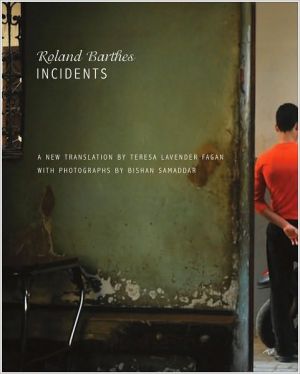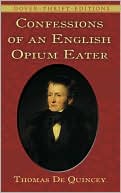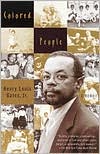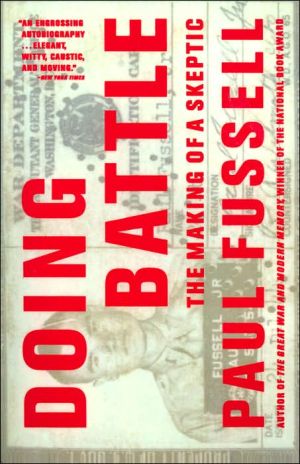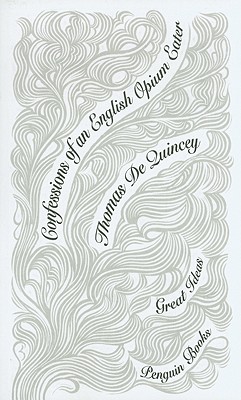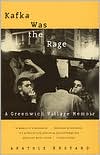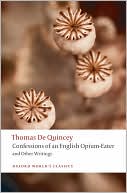Incidents
The essays collected in Incidents, originally published in French shortly after Barthes' death, provide unique insight into the author's life, his personal struggles and his delights. Though Barthes questioned the act of keeping a journal with the aim of having it published, he decided to undertake a diary-like experiment in four parts. The first, 'The Light of the Southwest', is an ode to Barthes' favourite region in France. The second, which gives the collection its title, is a revealing...
Search in google:
"The autobiographical pieces of Incidents give us a new Barthes: not the famous writer who happens to be a gay man, but the gay man who happens to be a famous writer. This is the other face of fame: bravely endured soirées parisiennes during which the aging gay celebrity is constantly surrounded and almost never desired. D. A. Miller's brilliantly militant essay relieves us of the embarrassment such images might cause us. . . . His critical mémoires d'outre tombe should make it impossible for us ever again to ignore discreetly Barthes's homosexuality when we speak of his strength."—Leo Bersani, author of The Culture of Redemption Publishers Weekly One of Barthes's most influential ideas is in distinguishing between texts that ask the reader to simply accept the author's words and those that involve the reader as a kind of co-author. Incidents, a new translation of personal essays originally published posthumously in 1987, falls, like all of Barthes's work, into the latter category. Three out of the four pieces are essentially journal entries-short -hand, non-linear vignettes-giving readers little choice but to insert themselves into the gaps. Even in his more scholarly work, Barthes often preferred list-like entries to conventional essays. And while the subjects here-his feelings about the landscape of his childhood, his desire for Moroccan boys, an unsatisfying social life populated by "gigolos" and intellectuals-are more personal (and more sexually explicit), the connection between the two is clear. There's pleasure in Barthes's ability to connect things that until that moment seemed separate, but the book, inflated by Bishan Samaddar's photographs, feels a bit like a vanity project. If reading is work-deep, playful, and satisfying-better to spend time with Barthes's explications of reading and writing, literature and images, or, for those who crave the personal, his fascinating Roland Barthes by Roland Barthes. Photos. (c) Copyright PWxyz, LLC. All rights reserved.
Translator's NotePublisher's Note to the French EditionThe Light of the South West 1Incidents 17At Le Palace Tonight ... 117Evenings in Paris 131
\ Publishers WeeklyOne of Barthes's most influential ideas is in distinguishing between texts that ask the reader to simply accept the author's words and those that involve the reader as a kind of co-author. Incidents, a new translation of personal essays originally published posthumously in 1987, falls, like all of Barthes's work, into the latter category. Three out of the four pieces are essentially journal entries-short -hand, non-linear vignettes-giving readers little choice but to insert themselves into the gaps. Even in his more scholarly work, Barthes often preferred list-like entries to conventional essays. And while the subjects here-his feelings about the landscape of his childhood, his desire for Moroccan boys, an unsatisfying social life populated by "gigolos" and intellectuals-are more personal (and more sexually explicit), the connection between the two is clear. There's pleasure in Barthes's ability to connect things that until that moment seemed separate, but the book, inflated by Bishan Samaddar's photographs, feels a bit like a vanity project. If reading is work-deep, playful, and satisfying-better to spend time with Barthes's explications of reading and writing, literature and images, or, for those who crave the personal, his fascinating Roland Barthes by Roland Barthes. Photos. \ (c) Copyright PWxyz, LLC. All rights reserved.\ \ \ \ \ Bookslut"Incidents is replete with prowling boys, and Barthes is completely frank in describing his desires. (The book is, after all, a journal.) Even if Incidents fails to get you in a thoughtful mood, it should get you in a cruisy one. And there''s always the something in between, which is the place that Barthes seems most often to be: the boys supply him a spark of provocation that spurs him to thought, but thought is something more successfully pursued alone. Samaddar''s photos, though only a handful of them are overtly erotic, are a perfect accompaniment to the text on that front, stolen glances that capture the sensuality of fleeting encounters."--Bookslut.com\ \ \ TLS"Its strange disconnectedness bears witness . . . to the author''s grappling with the tension between the need to remain as true as possible to the moments he portrays and his desire to embroider on them."—Times Literary Supplement\ \ \ \ \ \ Library JournalBarthes (1915-80) was one of France's most influential literary theorists, whose works, such as S/Z ( LJ 8/74), The Pleasure of the Text ( LJ 6/1/75), and Writing Degree Zero (Farrar, 1977), had a profound impact on generations of Anglo-American critics. This recent volume, first published in France after the author's death, includes notes on a trip to Morocco in 1969, a brief essay on the Parisian disco Le Palace, and a lengthier ``intimate'' journal, Soirees de Paris , begun in 1979. The theme as such is desire, specifically gay male desire. In these texts we don't have the renowned writer whom we discreetly know to be gay, as Leo Bersani notes on the book's cover, ``but the gay man who happens to be a writer.'' It is enough to send one back for a rereading of A Lover's Discourse: Fragments ( LJ 8/78). In his essay, critic Miller uses his intellectual/erotic crush on Barthes, whom he never met; his imaginings of Barthes; fragments of Barthes's texts; and incidents from his own life to explore the theoretical and sometimes not so theoretical issues of contemporary gay male life. In the process we get a wonderful, humorous reading of Barthes that sends the mind leaping in hundreds of directions while repeatedly resting on the relationship between gay male identity and the literary text. Both of these books are recommended for all academic collections and for public libraries with strong literary or gay studies collections.--Brian Kenney, Pace Univ. Lib., Manhattan Campus, New York\ \
